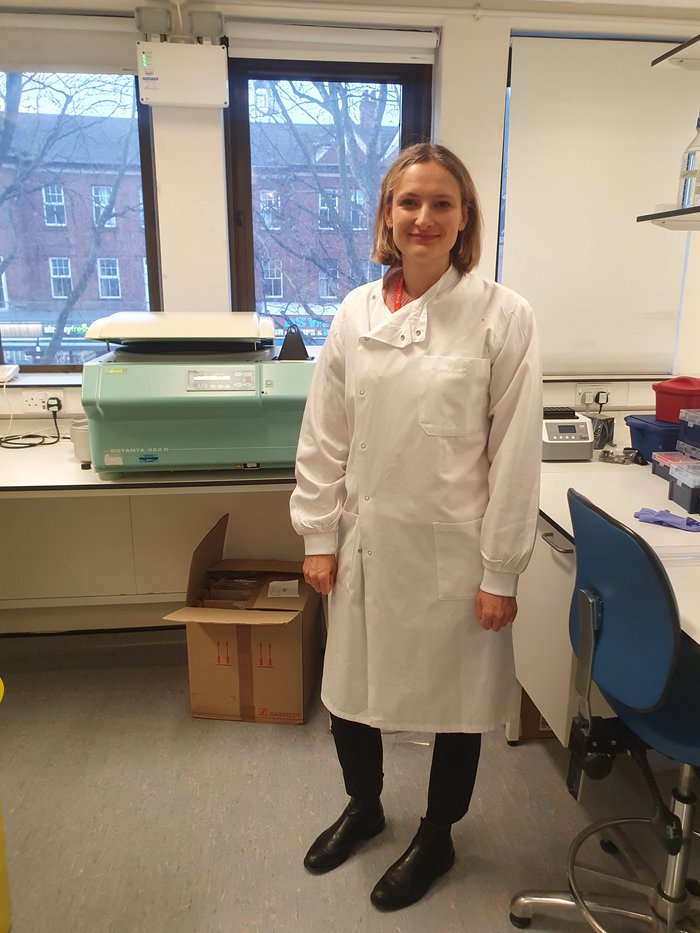Advancing CAR-T cell therapy to transform treatment and provide hope for people with myeloma
Myeloma is the second most common blood cancer and it effects blood cells in the bone marrow, called plasma cells. Dr Charlotte Graham and her team at King's College London are running a clinical trial to test a new type of CAR-T cell therapy to find a new way to treat the disease.

Dr Charlotte Graham
The challenge
Myeloma is the second most common blood cancer, with around 5,000 people diagnosed in the UK each year. The disease affects blood cells in the bone marrow called plasma cells. Despite advances in treatments, it currently has no cure. New drug treatments offer hope but are not always widely available through the NHS. This leaves many people with the disease with few treatment options and a desperate need to develop new treatments.
CAR-T cell therapy is a type of cancer treatment that harnesses the power of our immune system to destroy cancer cells offers a promising new approach to treating myeloma. This treatment involves taking T-cells (cells that help to protect you from infection and disease) from a patients’ own blood, modifying them in a lab and then giving them back to the patient to seek out and destroy the cancer. A specific type of CAR-T cell therapy targets a protein called BCMA found on myeloma cells. However, this treatment isn’t available on the NHS to people with myeloma as it is not always effective. Research is needed to explore new CAR-T cell therapies that are effective for everyone with the disease.
The Project
Dr Charlotte Graham and her team at King's College London are running a clinical trial to test a new type of CAR-T cell therapy called TriPRIL CAR-T. They plan to trial this in 20 people who have already received three currently available treatments but their myeloma has come back. This new type of CAR-T cell therapy will target two specific proteins on the surface of the myeloma cancer cells. The team will use a new rapid production process to produce CAR-T cells in only three days, allowing people on the trial to start treatment more quickly. Some people on the trial will also receive a drug called lenalidomide to see if it boosts the effectiveness of this new CAR-T therapy even further.
The future
If this new CAR-T cell therapy is successful, it could revolutionise treatment for many people with myeloma, providing a potentially life-saving treatment. Ultimately, this research has the potential to bring about a faster and cheaper treatment that could be made widely available on the NHS. The rapid production could transform how CAR-T cells are made, enabling faster, more cost-effective, and locally produced treatments. This could make CAR-T cell treatments more accessible as they could be given at hospital sites across the UK.
My motivation to find cures for blood cancer stems from my brother’s treatment for lymphoma more than 20 years ago, which led me on a career path as a haematologist and cancer researcher.
- Dr Charlotte Graham
Funding
This research is funded by the Matthew Wilson Multiple Myeloma Fund at Blood Cancer UK.
Read more about some of the other the projects funded by the Matthew Wilson Multiple Myeloma Fund.
